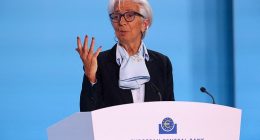Though the deposed civilian prime minister has returned, the military is still calling the shots
Coups are always something other people do. So Sudan’s army chief, Abdel Fattah al-Burhan, has insisted that the removal and detention of the prime minister and other politicians in October “was not a coup”. Instead, it was “correcting the track of the transition” that began with the ousting of Omar al-Bashir in 2019 following mass protests, and his replacement with interim arrangements under which the military and civilians shared power, uncomfortably.
The tens of thousands who protested against military rule in Khartoum and other cities on Tuesday disagree with the general’s analysis. Though the military has now reinstated the prime minister, Abdalla Hamdok, his former allies see him as a Potemkin leader whose presence whitewashes rather than reverses the coup. Twelve ministers, including those for foreign affairs and justice, resigned in protest at the deal; the Sudanese Professionals Association (SPA), one of the leading protest groups, called it “treacherous”. The deal does not appear to mention the Forces for Freedom and Change, the civilian coalition that ousted Mr Bashir. Nor is it believed to specify when the military will hand power to an elected civilian government, though it now claims that there will be elections in 2023.



